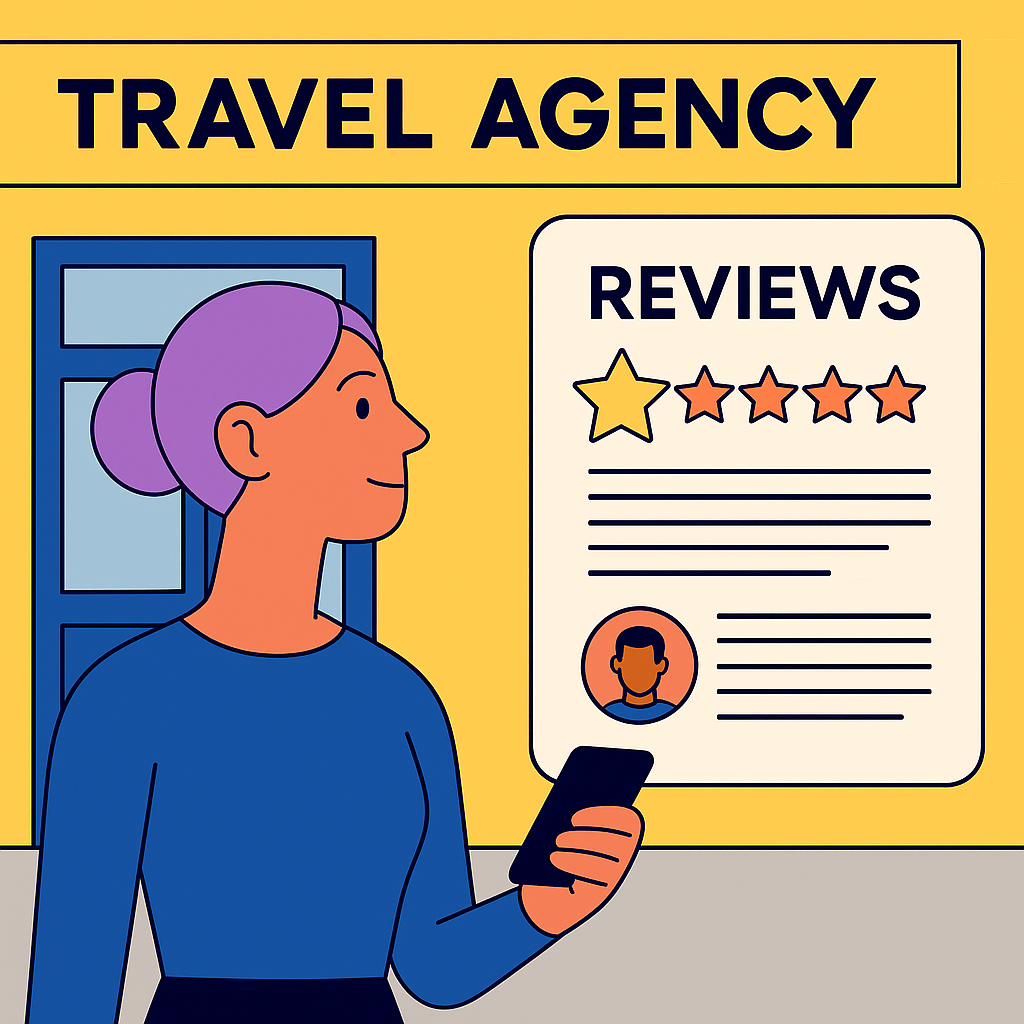VAO (Vacances Adaptées Organisées) accreditation is a prerequisite for any organisation wishing to offer specially adapted holidays for people with disabilities. It guarantees compliance with strict standards in terms of safety, inclusion and quality of support and organisation, making for an enriching, stress-free holiday experience for beneficiaries.
VAO approval is a major step forward for inclusive tourism. It enables more people with disabilities to enjoy holidays that are tailored to their needs, thanks to solid organisation and support, thus helping to broaden the range of services and leisure activities available. It also promotes the development of the tourism sector by encouraging each beneficiary travel agency to offer adapted services and by creating specialised jobs.
How to obtain VAO approval and participate in inclusive tourism?
The diversification of offers and the integration of services adapted to all are major challenges in the tourism sector. For a travel agency, obtaining VAO (Vacances Adaptées Organisées) accreditation is seen as a unique opportunity to position itself in the market and to respond to a growing demand for inclusion.
VAO : An asset for your agency
Before embarking on the application procedure, it is essential to understand the scope of VAO approval. This approval, granted by the relevant authorities, validates an agency's ability to organise trips for people with disabilities. It is an indicator of quality and reliability that reassures customers and gives access to a niche market.
VAO approval is the result of a rigorous assessment of the services offered by an agency. This assessment takes into account a number of criteria, including staff training, adaptability of infrastructure, safety and customer comfort. Agencies must demonstrate their ability to meet the specific needs of people with disabilities, in terms of accessibility, support and services.
VAO accreditation is not an end in itself, but a step in a process of continuous improvement. Agencies are encouraged to innovate and constantly improve their services to maintain their accreditation and meet the growing expectations of their customers. This may involve investing in new technologies, ongoing staff training or expanding the range of services on offer.
VAO accreditation also gives agencies a higher profile in the disabled tourism market. It is often a criterion of choice for potential customers, who are looking for guarantees of quality and reliability. It therefore enables agencies to stand out from the competition and gain access to a specific and growing market segment.
First phase: Self-assessment, a preliminary step
The process of obtaining VAO accreditation begins with a self-assessment. This stage involves assessing the travel agency's current capacity to meet the specific needs of this clientele. A review of resources, skills and any shortcomings is required. The self-assessment process is seen as an essential part of the VAO accreditation process.
A thorough analysis of the resources and skills available within the agency is required. This includes an examination of the technical and non-technical skills of employees and an assessment of the agency's ability to provide a quality service to its clients.
Another important aspect of self-assessment is the identification of gaps. This may involve examining work processes, management systems and internal policies. The aim is to identify areas where the agency's services can be improved and where resources or training need to be reinforced.
Once the self-assessment has been completed, an action plan must be put in place by the agency to address the shortcomings identified. This plan may include adopting new technologies, training staff or improving internal processes.
It should also be emphasised that obtaining VAO accreditation requires a long-term commitment. Travel agencies must persevere in evaluating and improving their services in order to maintain their accreditation. This requires regular reassessment of its resources and skills, as well as ongoing monitoring of the quality of its services.
From Theory to Practice : Training and Adapting Services
Once the self-assessment is complete, staff training becomes imperative. Appropriate training programmes help them to understand the challenges of inclusive tourism. It is also necessary to adjust services to ensure full accessibility and appropriate support. Staff training is seen as an essential aspect of the successful implementation of inclusive tourism. It is required that training programmes are designed to support staff in understanding the specific needs of people with disabilities and in providing services adapted to these needs. Training is expected to include appropriate interaction techniques, the use of assistive equipment and the design of facilities to improve accessibility.
It is important to recognise that accessibility is not limited to physical infrastructure; it also includes access to information, communication and services. It is therefore imperative that training addresses all of these aspects to ensure a truly inclusive tourism experience. For example, staff could be trained to use plain language to facilitate communication with people who have difficulty understanding.
Adequate support is identified as another pillar of inclusive tourism. Staff are expected to be trained to provide appropriate support to people with disabilities, whether this involves physical assistance, navigational help or support in accessing services and activities. This may involve specialist training in first aid, manual handling and other relevant skills.
Finally, it is crucial to raise staff awareness of the attitudes and stereotypes that can act as a barrier to inclusion. Effective training is seen as a means of deconstructing these prejudices and promoting a culture of inclusion and respect.
Preparing the dossier : a decisive stage
Once the staff have been trained and the services adapted, the next step is to put together the application for approval. This file must demonstrate your know-how and your dedication to inclusive tourism. Every piece of evidence is important. The application file must be meticulously prepared. It includes several elements that demonstrate competence and commitment to inclusive tourism.
First of all, it is essential to submit a complete file to the Agence Nationale des Vacances Adaptées (ANVA). This file must include a detailed description of the services, leisure activities and activities offered by the agency, as well as precise information on the means used to maximise the adaptation of these services to the specific needs of each customer.
ANVA then carries out an audit to check that the services offered by the travel agency comply with the quality standards required for VAO approval. This audit is based on precise criteria, such as the quality of services, safety, accessibility, adaptation and consideration of the specific needs of each customer.
Once the audit has been successfully completed, the travel agency must undertake to comply with strict specifications, which include regular monitoring of customer satisfaction with the organisation and support offered by the agency, as well as regular updating of the services offered in line with customer feedback and changes in the tourism market.
You then need to submit a full application to the Regional Department for Youth, Sport and Social Cohesion (DRJSCS) in your region. This application must contain precise information about the structure, the holiday project, the support arrangements and the guarantees of safety, support and adaptation. Proof of expertise in the field of disability is also required.
Once the application has been submitted, an investigation is carried out by the DRJSCS to check that the request is in order. During the investigation, an in-depth business plan is required, setting out the strategy adopted to ensure that the establishment is accessible to everyone. The plan must include details of the facilities provided for people with reduced mobility and the services offered to disabled people. The file must also contain evidence of staff training. It is essential that these documents attest to the qualifications of staff and their awareness of the importance of inclusion.
In addition, evidence of commitment to inclusion, such as letters of recommendation from customers or testimonials from partners, must be included in the dossier. Finally, it must be demonstrated in the dossier that services have been adapted to meet the needs of all customers. Examples include the inclusion of Braille menus for visually impaired customers or interpretation services for deaf customers. If validated, accreditation is issued for a renewable period of five years.
Lastly, VAO accreditation is conditional on compliance with the disability inclusion commitments within the various leisure activities. Failure to do so could result in the agency losing its accreditation, with all the consequences that this could have on its reputation and position in the market.
On-site inspection: the litmus test
Once the application has been submitted, an on-site inspection is usually carried out. This stage ensures that the agency meets the standards required for VAO approval. During the on-site inspection, several aspects are taken into account. The inspection team assesses the quality of the agency's infrastructure. This includes the inspection of workspaces, storage areas and sanitary facilities. The aim is to ensure that the agency has the necessary resources to provide a quality service that complies with VAO standards.
The agency's means of transport are also inspected. Vehicles must meet certain safety and comfort standards. They must be regularly maintained and inspected to guarantee their reliability. The availability of vehicles and their ability to meet customers' needs are also checked by the inspectors.
The agency's internal procedures are another crucial aspect of the inspection. Inspectors look at how the agency handles customer enquiries, deals with complaints and resolves problems. Staff training processes are also assessed, to ensure that all employees are well trained and able to provide a quality service.
Finally, the accessibility of the facilities is assessed by the inspectorate. The premises must be easily accessible to customers and meet accessibility standards. This includes aspects such as accessibility for people with reduced mobility, clear signage and easy access to information...
Post-Agrément: Continuous Innovation to Distinguish Yourself
Acquiring accreditation is just the beginning. To remain competitive, it is crucial to continue innovating and improving the services you offer. Paying attention to customer feedback and incorporating it into the continuous improvement process is vital to strengthening your position as a leader in the field of adapted tourism. Each step represents an opportunity to improve your value proposition and strengthen your commitment to a deserving clientele.
By applying these tips, you will enrich your range of services while contributing to more inclusive and ethical tourism. Innovation must be a constant objective, both in the development of new services and in the improvement of existing ones. This is expected to involve the use of cutting-edge technology, the optimisation of operational processes and the provision of ongoing employee training to ensure an effective response to customer needs. Improving services must not be limited to meeting customers' current needs; it must also anticipate their future needs.
To achieve this, it is essential that a proactive approach is adopted in order to understand market trends, technological developments and regulatory changes that may influence the adapted tourism sector. Incorporating customer feedback into the continuous improvement process is recognised as an effective strategy for maintaining competitiveness.
This can be achieved by putting in place systems to collect, analyse and act on customer feedback. Finally, it is crucial that the value proposition is reinforced by a focus on commitment to a deserving customer base. This can be done by offering high quality services, focusing on ethical standards and promoting inclusion. Through these actions, not only is the service offer enriched, but also a contribution is made to more inclusive and ethical tourism.
FAQ :
What is an adapted holiday?
The aim of an adapted holiday is to give participants the best possible holiday. Of course, the staff also focus on the safety of each participant. This is particularly true in the accommodation. Holidaymakers with the least independence are given extra supervision.


Join Ezus today
Request a demo today and discover how our software can help you reach new heights.









.avif)








